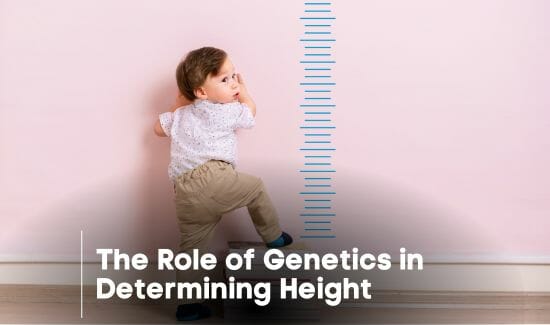
Coffee is one of the most popular beverages worldwide, enjoyed by people of all ages. It contains caffeine, a natural stimulant that affects the central nervous system and provides a boost of energy. When it comes to the relationship between coffee consumption and height, the scientific evidence is complex and inconclusive. While some studies suggest that excessive coffee intake in adolescence may have a slight negative impact on growth, other research shows no significant correlation between coffee consumption and height. Therefore, it is essential to delve deeper into the science behind coffee and height to understand its potential effects.

The Relationship Between Coffee and Growth
The relationship between coffee consumption and growth has been a topic of interest among researchers and health enthusiasts. Many individuals wonder whether their daily cup of joe has any impact on their height. While coffee does contain certain compounds that can affect the body, the evidence regarding its direct influence on growth is still inconclusive.
One factor that researchers have looked into is the effect of coffee on bone density. It has been suggested that coffee, particularly when consumed in excess, may reduce calcium absorption and negatively affect bone health. However, the impact on height specifically remains unclear. Additionally, studies have explored the potential effects of coffee consumption during adolescence, a critical period for growth. Some research suggests that excessive caffeine intake during this time may interfere with the natural growth process, but more research is needed to draw definitive conclusions.

Coffee and Its Impact on Bone Density
One factor that researchers have looked into is the effect of coffee on bone density. It has been suggested that coffee, particularly when consumed in excess, may reduce calcium absorption and negatively affect bone health. However, the impact on height specifically remains unclear. Additionally, studies have explored the potential effects of coffee consumption during adolescence, a critical period for growth. Some research suggests that excessive caffeine intake during this time may interfere with the natural growth process, but more research is needed to draw definitive conclusions.
Some research indicates that excessive coffee intake, particularly in individuals who are already at risk for osteoporosis, may lead to a decrease in bone mineral density. This can potentially increase the risk of fractures, especially in older adults. However, it is important to note that the impact of coffee on bone density may vary among individuals, as factors such as age, gender, and overall diet also come into play.

How Coffee Consumption May Affect Height in Adolescents
Coffee consumption has long been a subject of speculation when it comes to its impact on height in adolescents. Some studies suggest that excessive coffee intake during adolescence may stunt growth, while others argue that there is no direct correlation between the two. One key factor seems to be the caffeine content in coffee, which has been shown to interfere with calcium absorption, an essential mineral for bone development. However, it is important to note that the effect of coffee on height may vary depending on individual factors such as genetics, overall diet, and lifestyle choices.
While some research suggests a potential negative impact of coffee on height in adolescents, other studies propose that the relationship may not be as significant as previously thought. Factors such as overall nutrition and exercise play crucial roles in determining height during adolescence. Therefore, it is essential to take a holistic approach when examining the potential effects of coffee consumption on height, considering various factors that contribute to overall growth and development.

The Link Between Coffee and Height in Adults
Although the impact of coffee on height in adults is often a subject of debate and speculation, scientific research has shown limited evidence suggesting a direct relationship between the two. One study conducted by researchers at the University of California found a slight decrease in bone density among adult coffee consumers, which could potentially affect height. However, it is important to note that this study did not specifically measure the effects of coffee on height and more research is needed to establish a conclusive link.
Furthermore, genetics plays a significant role in determining adult height, and the influence of factors such as nutrition, physical activity, and overall lifestyle cannot be overlooked. While some individuals may experience a slight decrease in height due to potential effects on bone density, it is unlikely that coffee consumption alone will have a significant impact on adult height. Therefore, it is important not to overly focus on coffee as the sole determinant of height, but rather consider it as one of many factors that may contribute to overall growth and development in adults.

The Role of Genetics in Determining Height
The height of an individual is largely determined by a combination of genetic factors. Genetic factors play a significant role in the growth and development of an individual, including the height they are likely to reach. Research has shown that approximately 80% of a person’s height can be attributed to genetic factors, while the remaining 20% is influenced by environmental factors such as nutrition, medical conditions, and lifestyle choices.
One of the key genetic factors that contribute to height is the interaction between multiple genes. Scientists have identified several genes that are associated with height, including the growth hormone gene, insulin-like growth factor 1 gene, and the estrogen receptor gene. These genes are responsible for regulating the growth and development of bones, muscles, and other tissues, ultimately determining an individual’s height potential. Additionally, variations in these genes can affect the efficiency of these growth processes, leading to differences in height among individuals.
While genetics play a significant role in determining height, it is important to note that other factors also contribute to an individual’s height. Factors such as nutrition, exercise, and overall health can also impact growth and development. For instance, if a person does not receive adequate nutrition during childhood and adolescence, it can hinder their growth potential, regardless of their genetic predisposition for height. Therefore, while genetics provide a blueprint for height potential, it is the interplay between genetic and environmental factors that ultimately determines an individual’s height.

Debunking Common Myths About Coffee and Height
Coffee has long been the subject of various myths and misconceptions, especially when it comes to its impact on height. One common myth is that drinking coffee can stunt growth in adolescents. However, scientific evidence does not support this claim. Numerous studies have shown that moderate coffee consumption does not have a significant effect on the height of teenagers. Instead, factors such as genetics, nutrition, and overall health play a much more significant role in determining a person’s height.
Another myth is that coffee can make adults shorter. Again, there is no scientific evidence to support this belief. Adult height is determined primarily by genetic factors, which are largely influenced by various hormones during childhood and adolescence. While excess caffeine consumption may temporarily affect posture and spinal alignment due to its stimulating effects, it does not have a long-term impact on height. Therefore, it is essential not to confuse temporary effects with permanent changes. As with any aspect of health, moderation and a balanced lifestyle are key to maintaining optimal growth and development, irrespective of coffee consumption.

Practical Tips for Coffee Lovers to Maintain Optimal Height
Switching to decaf coffee is one practical tip for coffee lovers who want to maintain optimal height. Decaffeinated coffee significantly reduces the intake of caffeine, which is known to potentially affect growth. By opting for decaf, individuals can still enjoy the taste and ritual of coffee without the potential negative impact on their height. It is important to note, however, that decaf coffee may still contain a small amount of caffeine, so moderation is key.
In addition to switching to decaf, another tip for coffee lovers is to ensure a balanced diet rich in nutrients necessary for growth. Coffee should not be relied upon as a sole source of energy or nutrition. Including foods that are high in calcium, vitamin D, and protein can support healthy bone development and overall growth. Consuming a variety of fruits, vegetables, whole grains, and lean proteins can provide the body with the essential nutrients it needs for optimal height. It is always beneficial to consult with a healthcare professional or registered dietitian for personalized advice on maintaining a healthy diet while still enjoying coffee.

The Importance of a Balanced Lifestyle for Overall Growth
A balanced lifestyle plays a crucial role in overall growth, encompassing not just physical health but also mental and emotional well-being. It serves as the foundation for a healthy body and mind, allowing individuals to reach their full potential in all aspects of life. From childhood to adulthood, maintaining a balanced lifestyle ensures that individuals can navigate the challenges and demands of daily life with ease.
Eating a nutritious diet, engaging in regular physical activity, and getting enough sleep are essential components of a balanced lifestyle. A diet rich in fruits, vegetables, whole grains, and lean proteins provides the necessary nutrients for growth and development. Regular exercise strengthens muscles and bones, enhances cardiovascular health, and promotes the release of endorphins, which contribute to a positive mental state. Sufficient sleep allows the body to repair and regenerate, supporting overall growth and recovery. Together, these elements create a harmonious balance that promotes optimal growth and well-being.
FAQs:
Is coffee consumption beneficial for height growth?
The impact of coffee consumption on height growth is still a subject of debate. While some studies suggest a potential link between coffee consumption and reduced height in adolescents, the overall effects are not significant enough to draw definitive conclusions.
Can drinking coffee impact bone density?
Some studies indicate that excessive coffee consumption may be associated with decreased bone density, which can have implications for overall growth. However, moderate coffee consumption is unlikely to have a significant impact on bone health.
Is genetics a more significant factor in determining height than coffee consumption?
Yes, genetics plays a far more substantial role in determining an individual’s height compared to coffee consumption or any other external factors. While coffee may have a small influence, genetics primarily determine an individual’s height potential.
Are there any common myths about coffee’s impact on height?
Yes, there are several common myths surrounding coffee’s impact on height, such as the belief that drinking coffee can stunt growth. However, scientific evidence does not support these claims, and moderate coffee consumption is unlikely to have a significant impact on height.
What are some practical tips for coffee lovers to maintain optimal height?
To maintain optimal height, coffee lovers should focus on maintaining a balanced lifestyle. This includes consuming coffee in moderation, ensuring a nutritious and well-rounded diet, engaging in regular physical activity, getting enough sleep, and minimizing other factors that may negatively impact growth.

As a dedicated blogger, I share insights, tips, and knowledge on all things caffeinated and beyond. I firmly believe that a well-brewed cup of coffee or a skillfully crafted cocktail has the power to unite people and ignite engaging conversations.


